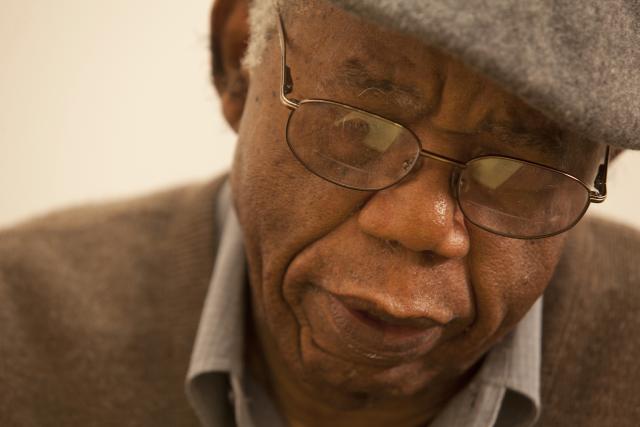Chinua Achebe's legacy is clear from writers who follow the path he forged
It may not be his books themselves that we remember, but rather the books that have continued to come after

Politics make for resounding epitaphs. From the 1958 publication of Things Fall Apart to the 2012 release of There Was a Country, Chinua Achebe thrashed against the banner themes of clashing cultures, duelling religions, and suffocating corruption. And yet, in the long run, it may not be these contributions we remember most fondly. Rather, it’ll be the background politics we come to praise – those prickly debates on the use of borrowed language, yes, but much more so the many determined and unwavering reclamations of story – even as they, in their most fierce adoptions, tilt ever so slightly into xenophobia.
From the very start, Achebe, who passed away last week at 82-years-old, aimed his work at the litany of alienating, Eurocentric narratives long cultivated by colonists, explorers, and clerics. It may be hard today to imagine just how daunting a task that must have seemed. Even Africans, enriched for eras with stories of their own, sometimes forgot there was anything else. Though Achebe at first identified with foreign literary heroes and their reductionist conceits, as a young man he became incensed, in particular by Joyce Cary’s Mr. Johnson. He wrote Things Fall Apart in response, and today few people have ever heard of Cary’s book without first researching Achebe’s debut.
Things Fall Apart was published at a pivotal time in the development of Africa’s nationalist spirit. The year before, Ghana celebrated its independence, the first such party in sub-Saharan Africa. Two years later, Achebe’s home country of Nigeria embarked on the first of its rocky republics, but his fiction and criticism would forever clash with the country’s civilian and military governments. In 1962, Achebe became editor of the Africa Writers Series, published by Heinemann Educational Books, and for the next ten years he ferried dozens of African writers through the arches of publication. The books were released in London and Africa, and soft cover print-runs made their purchase more economical for struggling African students and universities eager to shove up against colonial influences in the day’s curricula. An entire literary tradition precipitated from these efforts, much of its momentum bound up in social and political protest.
In 1975, Achebe delivered a landmark lecture in his politics of reclamation. Up to then, his output was more a practice of counterbalancing colonial narratives with African contributions, rather than blasting the armature directly. But early that year, during a professorship at the University of Massachusetts, he presented a Chancellor’s Lecture deconstructing Joseph Conrad’s Heart of Darkness and rearranging the hallowed pieces into a portrait of patronizing, accidental racism. Conrad’s defenders accused Achebe of hiding his politics in a gruel of literary criticism, but the lecture’s emancipating impact is still felt today.
Achebe then settled into a rhythm of academia and creativity, producing children’s literature, poetry, novels, short stories and polemics railing against Nigeria’s political establishment. But his output was crushed in 1990 when he was paralyzed from the waist down in a car accident, and professorships made up the bulk of his remaining career. In 2012, he published There Was a Country, a much anticipated memoir about his experiences in the Biafran War, but the book was poorly constructed and plump with ethnic jingoism.
Still, his contribution to the world’s literature was cemented long before. International awards crowded his mantle, and while he may not have revelled in the "father of African literature" designation so often married to his name, his role in the tradition’s tipping point can’t really be understated. A whole new generation of African writers has been emboldened by his legacy, including international darlings like Chimamanda Ngozi Adichie, whose debut novel, Purple Hibiscus, channelled Things Fall Apart in its opening sentence, and Binyavanga Wainaina, whose satire redoubles Achebe’s reclamation campaign.
And unlike a lot of legacy-makers, Achebe lived to see the seeds of his efforts sprout and bear fruit. There is no longer an outsider’s monopoly on the African narrative, at least not in fiction (though journalism, sandbagged by cliché on one side of the Atlantic and propaganda on the other, still has a ways to come). The global market is now a space in which a debut novel like Taiye Selasie’s Ghana Must Go can land a book deal with a major international publisher before it’s even finished. In fact, it’s almost as if fierce guardians like Adichie and Wainaina, each of whom has laid out themes and subplots hostile to outsider accounts of African life, need to ease off a little, because Achebe’s foundation is firm, the house above it a marvellous and self-sustaining extravagance. What’s left to do, happily, is just a lot of reading.
Join our commenting forum
Join thought-provoking conversations, follow other Independent readers and see their replies
Comments
Bookmark popover
Removed from bookmarks